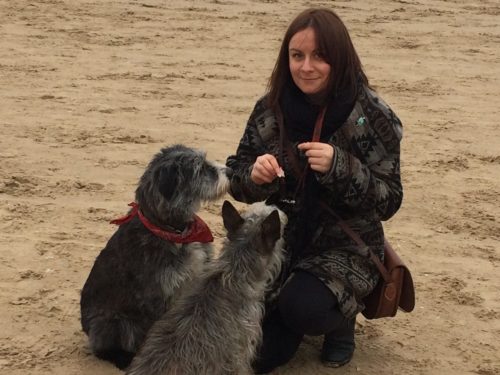
Anna is a community & education intervention monitoring & evaluation specialist. She is currently the Monitoring, Evaluation & Learning (MEL) Manager for Manchester City Football Club foundation; City In The Community. Previous to this she was the Education M&E lead at Dogs Trust, where she worked for six years. She has lead on transformative overhauls of the implementation of strategic MEL processes for both organisations by developing Theories of Change, outcome frameworks and multiple large scale quantitative and qualitative impact evaluations with evaluation work published in academic journal PLOS-One.
She holds a Masters degree from UCL in Educational Planning, Economics and International Development with a research specialty in Theory of Change and impact evaluation. She has supported and consulted to multiple animal welfare education programmes in low and middle income countries.
Anna is passionate about the need for organisations to recognise education & community intervention as complex; requiring of and interdependent on the same level of strategic planning as more practical and immediate charity strategy. And has a vocation to drive the pressing need for structured MEL to be embedded as an intrinsic cog in the machine of all behaviour change seeking organisations.
She lives in Manchester with her partner and son, has a scruffy dog called Mo, and has a special place in her heart for Indian street dogs.
A chat with Anna
Tell us a little bit about you and your journey into behaviour change in relation to improving the lives of animals?
I was born into a veterinary family, so animal welfare was in my blood right from the start. In true rebellious teenager fashion, however, I broke away from following the family trade and ‘ran away’ to drama school to train as an actor. Ten years of jobbing (resting) actor toil with a few meagre TV and theatre credits (and a side line in voice-over work, which I still do for pocket money today), I found myself in the cliché of actor turned educator. This lead to a role in the community and education department of a large arts centre, which taught me a great deal about working with communities. This was followed by several years of freelance teaching work and eventually a lot of travelling.
During my travels I found myself volunteering for various animal welfare and conservation NGOs, slowly coming full circle back to my family routes. After setting up an education programme for a small scale animal NGO in India, followed by a temporary role as Education Officer for Blue Cross, I eventually landed my Education Officer role at Dogs Trust. Working expansively within this field for over eight years it quickly came to my attention how the efficacy processes and clarity of outcomes was rather in its infancy in animal welfare and humane education intervention. So I took it upon myself to up-skill at the brilliant UCL Institute of Education with a masters in Educational Planning, Economics and International Development.
Skip forward three years and the returns from my studies have been momentous. I have had the incredible opportunity to directly utlilise all the skills I gained and continue to gain in this field that is crying out for it, to drive forward education design to maximise human behaviour change for animals. And I hope to continue indefinitely.
Why does behaviour change matter?
In the animal welfare education field, often a misinterpretation is made that the purpose of educating is to improve attitudes, or compassion, or beliefs etc. But it’s crucial that these values are recognised as proxies; a means not an end. Education programmes must view their fundamental outcome as human behaviour change because it is very possible to improve attitudes but have no resulting effect on behaviour. Most smokers after all know they shouldn’t smoke! Education programmes as a very first step need to have a clear understanding of the human behaviours specific to their wider organisation that they think they can change. That is the starting point to effective education intervention design.
Most Inspiring behaviour change intervention (animal welfare or not) and why?
This has to be anything Richard Thaler, his Nobel prize has dramatically raised the profile of nudge economics. If we can, we must help the whole animal welfare field to understand that humans do not behave rationally, so they do not simply do better because they are told better. Education by its very nature is a transfer of information. But how that information is transferred is open to interpretation. Behaviour economics needs to be factored into education intervention design and a recognition that no one approach will independently create the change we are seeking. Information transfer and education are vital, but only as a cog in a much bigger machine.
What is your vision for behaviour change for the next five years?
We need to all be in this for the long haul. Monitoring and evaluation has taught me that the world is continuously changing and so must our planning approaches. Hopefully in five years the animal welfare field will recognise that education and HBC strategy is not a side thing. But a driving force to EVERYTHING!

